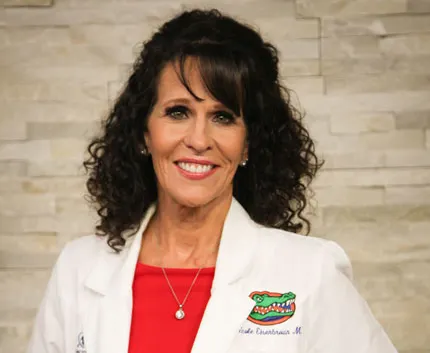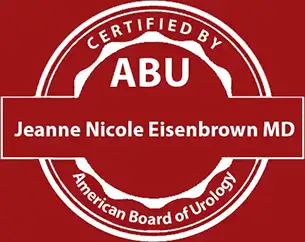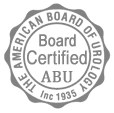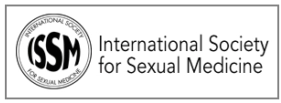Discover how low testosterone levels may contribute to erectile dysfunction.
Erectile dysfunction (ED) affects millions of men across all ages—and while it’s commonly linked to issues like circulation, diabetes, and stress, there’s another important factor that’s often overlooked: testosterone.
Testosterone, the primary male sex hormone, plays a vital role in sexual function, libido, and overall well-being. When levels of this hormone drop—whether due to aging, stress, or other health conditions—it can have a direct impact on erectile performance.
At Amore Medical, we specialize in men’s sexual health and hormone optimization. In this article, we’ll explore the science behind testosterone, how it influences erections, and what to do if low testosterone (Low T) is affecting your sexual health.
What Is Testosterone?
Testosterone is a hormone produced primarily in the testicles and regulated by the brain (the hypothalamus and pituitary gland). It plays a critical role in:
- Sexual desire and performance
- Sperm production
- Muscle mass and strength
- Bone density
- Mood and energy
- Fat distribution
- Red blood cell production
Normal testosterone levels help regulate sexual function and maintain physical and emotional balance. But when testosterone drops too low, it can cause a range of symptoms—including erectile dysfunction.
What Is Erectile Dysfunction?
Erectile dysfunction is the consistent inability to achieve or maintain an erection sufficient for sexual activity. It’s a common issue, particularly with age, but it can also affect younger men depending on underlying health and lifestyle factors.
Symptoms of ED:
- Difficulty getting or staying erect
- Reduced sexual desire (low libido)
- Shorter or less firm erections
- Anxiety around sexual performance
ED is often the result of a combination of physical, hormonal, and psychological factors. Among them, low testosterone is one of the most overlooked causes.
The Link Between Testosterone and Erectile Function
While achieving an erection primarily depends on blood flow, testosterone plays a key supporting role in the process. Here’s how:
- Testosterone Fuels Libido (Sex Drive)
Testosterone directly affects sexual desire. When levels drop, libido typically follows. A man with low testosterone may not feel mentally or physically aroused, making it harder to get or maintain an erection.
- Testosterone Supports the Erection Process
Although it doesn’t cause an erection directly, testosterone enhances the neurological signals that initiate an erection. Low levels can disrupt the connection between arousal and erectile response.
- Testosterone Affects Nitric Oxide Levels
Nitric oxide is a key molecule that relaxes blood vessels and allows blood to flow into the penis. Testosterone helps regulate nitric oxide synthesis. Without it, blood flow—and erections—suffer.
- Low Testosterone Impacts Confidence and Mood
Testosterone plays a role in emotional well-being. Low levels can lead to irritability, depression, and anxiety—all of which can interfere with sexual performance and increase performance-related stress.
What Causes Low Testosterone?
Testosterone naturally declines with age—about 1% per year after age 30—but other factors can accelerate the drop or push levels below the normal threshold.
Common Causes of Low T:
- Aging (especially after 40)
- Obesity or metabolic syndrome
- Chronic stress and high cortisol
- Sleep apnea or poor sleep
- Diabetes or insulin resistance
- Head trauma or pituitary disorders
- Excessive alcohol or drug use
- Sedentary lifestyle
- Certain medications (opioids, steroids)
At Amore Medical, we routinely test for these contributing factors when evaluating ED or symptoms of hormone imbalance.
Symptoms of Low Testosterone
Men with low testosterone may experience:
- Low sex drive
- Erectile dysfunction
- Fatigue and low energy
- Mood swings or depression
- Loss of muscle mass
- Increased body fat
- Trouble concentrating ("brain fog")
- Decreased bone density
- Poor sleep or insomnia
If you're experiencing several of these symptoms, it's worth getting your testosterone levels checked through a simple blood test.
How Is Testosterone Measured?
At Amore Medical, we offer comprehensive hormone panels that measure:
- Total testosterone: The total amount of circulating testosterone in your blood.
- Free testosterone: The active form not bound to proteins and available for use by the body.
- LH and FSH: Pituitary hormones that regulate testosterone production.
- SHBG (sex hormone-binding globulin): A protein that affects testosterone availability.
Testing both total and free testosterone gives a more accurate picture of hormonal health and whether Low T may be contributing to ED.
Can Low Testosterone Cause ED on Its Own?
Yes, low testosterone can contribute to ED, but it's rarely the only factor. ED is most often caused by a combination of:
- Poor blood flow
- Psychological factors
- Neurological issues
- Hormonal imbalances (including low testosterone)
That said, low testosterone is more likely to be the primary cause in men with:
- Low libido and reduced morning erections
- Muscle loss and fatigue
- Normal vascular and neurological function
- No major psychological stressors
This is why testing is so important—so treatment can be targeted and effective.
Treating ED Caused by Low Testosterone
If low testosterone is identified as a contributing factor, there are several safe and effective options for restoring balance and improving sexual health.
- Testosterone Replacement Therapy (TRT)
TRT involves supplementing the body’s natural testosterone through:
- Injections
- Topical gels or creams
- Pellets (implanted under the skin)
- Oral formulations (in some cases)
At Amore Medical, TRT is tailored to your unique hormonal profile and supervised by experienced providers who monitor dosage, progress, and safety.
Benefits of TRT:
- Improved libido
- Stronger, more consistent erections
- Increased energy and mood
- Better body composition
- Enhanced confidence and well-being
- Lifestyle Changes
Even if TRT is part of your treatment plan, lifestyle changes support better results and may help increase natural testosterone production.
- Exercise regularly: Strength training and HIIT boost testosterone.
- Get enough sleep: 7–9 hours of quality rest is essential for hormone production.
- Manage stress: Chronic stress increases cortisol, which lowers testosterone.
- Eat a balanced diet: Zinc, magnesium, vitamin D, and healthy fats all support testosterone.
- Lose excess body fat: Especially around the abdomen, which converts testosterone into estrogen.
- GainsWave® Therapy
For men with both vascular and hormonal issues, GainsWave® may be recommended. This non-invasive sound wave therapy improves blood flow and sensitivity for better erectile response—especially when paired with hormone therapy.
- P-Shot® (PRP Therapy)
This regenerative treatment uses your own platelets to rejuvenate penile tissue, improve circulation, and enhance sensitivity and stamina. It’s a powerful complement to TRT.
Can You Boost Testosterone Naturally?
In mild to moderate cases of Low T, some men may be able to restore healthy levels without medical therapy by:
- Building muscle through resistance training
- Eating more healthy fats (avocados, olive oil, eggs)
- Getting sunlight or supplementing with vitamin D
- Reducing sugar and processed foods
- Taking zinc or magnesium (if deficient)
However, men with severely low testosterone may still need medical intervention to fully restore hormonal balance.
How Long Does It Take to See Results?
With TRT and/or natural therapies, many men report:
- Increased libido within 2–4 weeks
- Improved energy and mood in 4–6 weeks
- Stronger erections and better performance in 8–12 weeks
- Noticeable physical changes in 3–6 months
Consistent follow-up and hormone monitoring are key to optimizing and maintaining results.
When to Get Your Testosterone Checked
You should consider testing your testosterone if you are:
- Experiencing symptoms of ED, especially with low libido
- Not responding well to ED medications
- Over 40 with fatigue, mood changes, or decreased performance
- Diagnosed with diabetes, obesity, or heart disease
- Concerned about fertility or long-term health
At Amore Medical, our hormone specialists provide accurate testing and individualized treatment plans to restore hormonal balance and optimize sexual health.
You Don’t Have to Live With Low T and ED
If you’re struggling with erectile dysfunction and suspect hormones may be involved, you’re not alone—and there are real, lasting solutions.
At Amore Medical, we take a comprehensive, compassionate, and personalized approach to men’s sexual health. We go beyond quick fixes to uncover the root cause of your symptoms and create a plan that works for your lifestyle and goals.
📍 Located in Altamonte Springs, FL
📞 Call today to schedule your consultation
To schedule your appointment, call 407-212-9532 or contact us online today.
\



















